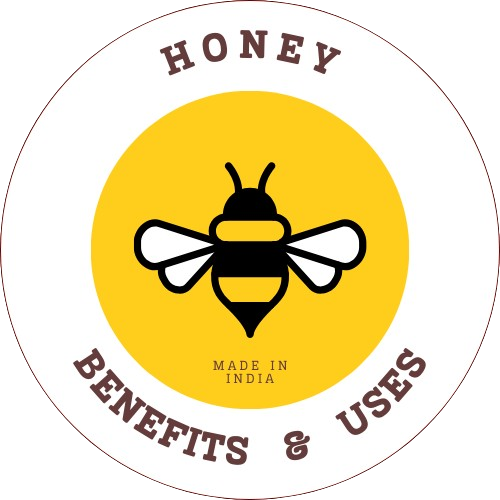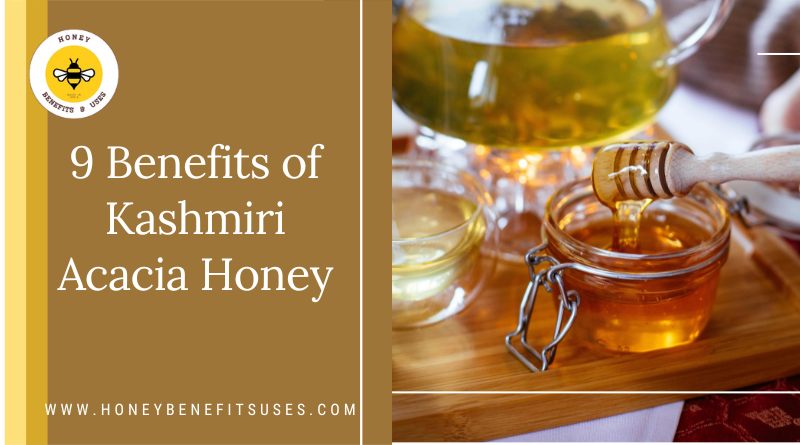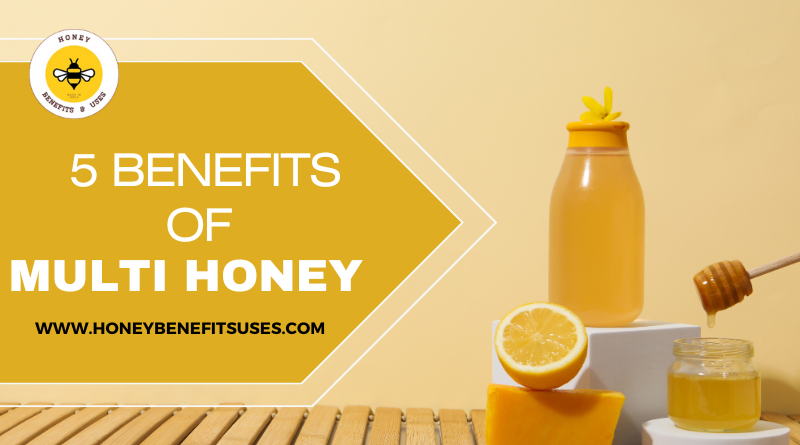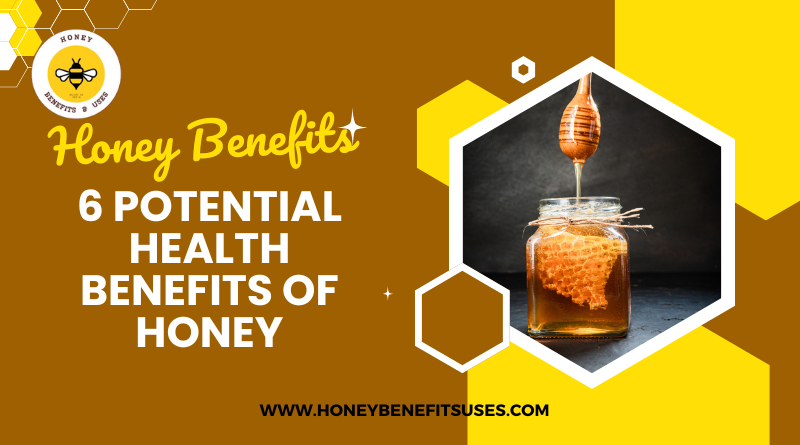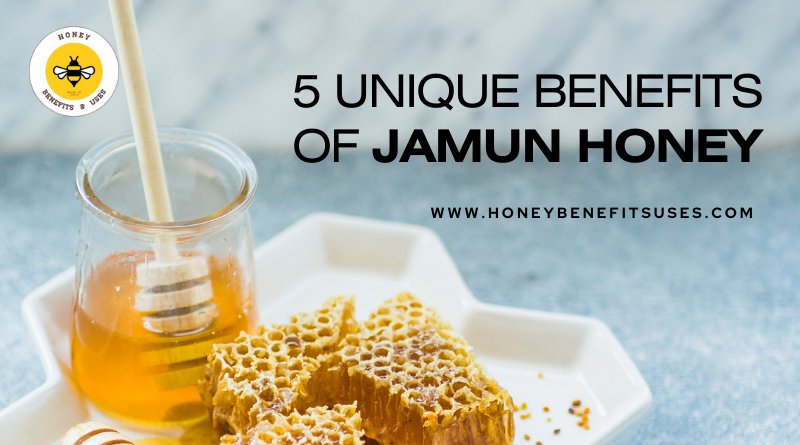
Jamun honey is a unique honey made by bees from the pollen of the flowers of the Jamun tree. This tree, native to India, is also referred to as the Malabar plum, Jambolan, nerale, black plum, and jaman. According to Hindu tradition, Lord Rama subsisted on the fruit of this tree while he was in exile.
Interestingly, the fruit of the Jamun tree has long been used in traditional medicine to cure many diverse ailments. These beneficial properties of the Jamun fruit are also found in the pollen of the flowers and thus translated to the honey made from the pollen.
Jamun Fruit
Jamun fruit has long been used to address digestive issues. It has also been used to deal with liver conditions and to reduce your risk of cancer. This is possible due to the high concentration of various phytochemicals in the fruit. Furthermore, research shows this low-glycemic fruit encourages an increase in insulin levels. This makes it ideal for those suffering from type-2 diabetes.
But it is not only the fruit that is used as a holistic remedy. Other parts of the tree such as the bark and seeds are also much sought-after as holistic remedies as they contain many of the beneficial properties of the Jamun fruit.
Please note that you should not eat Jamun fruit on an empty stomach. It is an acidic fruit and could thus interfere with your stomach acids. It is best eaten after you have had a meal.
The Benefits of Jamun Honey
Like most other types of honey, Jamun honey tends to take on the beneficial characteristics of the pollen from which it is made. It contains a lot of pollen and nectar from the Jamun flower. Dark in color, Jamun honey has a bittersweet flavor, making it unique.
Jamun honey also has amazing antibacterial and antifungal properties. This makes it amazing at healing skin infections or wounds. Research indicates that in diabetics, especially, it helps with the healing of diabetic wounds. It encourages healing at a cellular level while addressing inflammation.
Jamun honey is probably the best honey option for those dealing with type-2 diabetes. This is because it encourages higher insulin production. It does not, however, mean that a diabetic should start eating this honey by the spoonful – it is still honey and it is still sweet. And it could still have some of the negative repercussions of eating sweet things if you are a diabetic. Rather use it judiciously in food and drink.
Because of the high number of antioxidants in Jamun honey, it can give your immune system a boost. The honey is often used to help address coughs associated with colds and flu.
Other benefits of Jamun honey according to holistic healers include:
- Treating ulcers and other gastrointestinal conditions
- Addressing high blood pressure issues
- Taking care of skin inflammation
- Promoting heart health
- Increasing libido
How To Use Jamun Honey
You can use Jamun honey like any other honey. It is great on bread or to sweeten food. You can also use it in your tea or any other drink as a sweetening agent. You can also take it as a preventative tonic by taking a dessert spoon full after each meal.
A word of Caution When Considering Jamun Honey
Please do not give Jamun or any other honey to small children under the age of one year. People with pollen or bee allergies should also rather stay away from this and other types of honey as eating it may trigger a reaction. Although considered relatively safe for those with type-2 diabetes, diabetics should always only take honey after talking to their healthcare providers as each person is unique and it is best to rather be safe than sorry.
In Closing Jamun honey is indeed unique when it comes to its ability to help moderate your insulin levels. Yet it also has so many other beneficial properties that make it a firm favorite for those who deal with the use of natural remedies for healing. Jamun honey makes a great contribution to any home pantry, whether for cooking or as a natural remedy to help promote better health.
